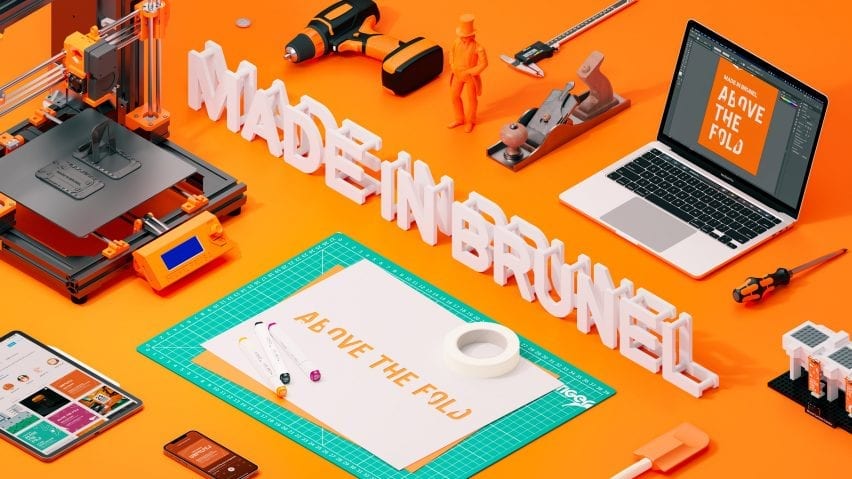
Made in Brunel: Above the Fold presents 100 design solutions
Dezeen promotion: Made in Brunel: Above the Fold is an exhibition by Brunel University design graduates taking place at The Bargehouse Gallery and Oxo Tower Gallery in London from 17 to 20 June 2021.
The exhibition presents 100 design solutions to everyday problems, including an app designed to help people with diabetes control their glucose levels, a personalised asthma management system and a tool to diagnose seasonal affective disorder (SAD).
Other projects include a mindful app made to help people living with rosacea and a system to manage medication that was designed for complex medical regimes.
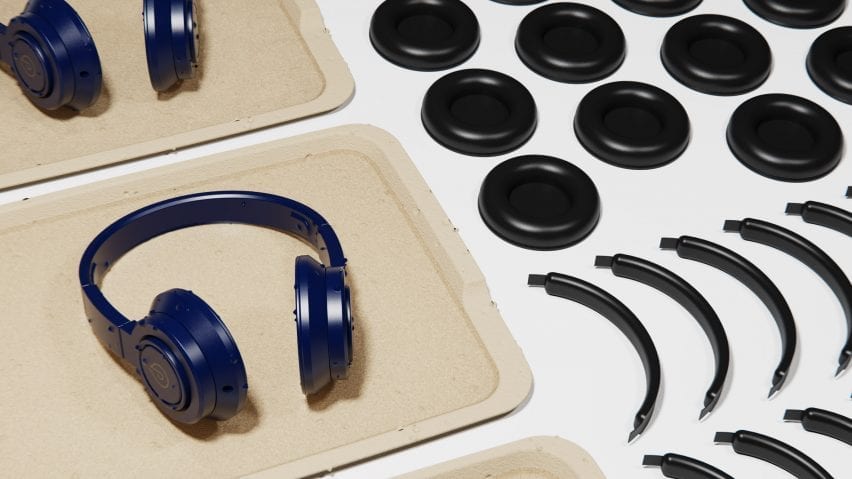
"Brunel designers are well versed in turning problems on their heads to develop effective solutions," said the organisers.
"However, this year, students have taken these problem-solving skills one step further – discovering how to conduct remote user testing when face-to-face testing was impossible and mastering the poly-jet printers when indoor workshops were inaccessible, were just a few of the adaptations to the design process introduced in 2021."
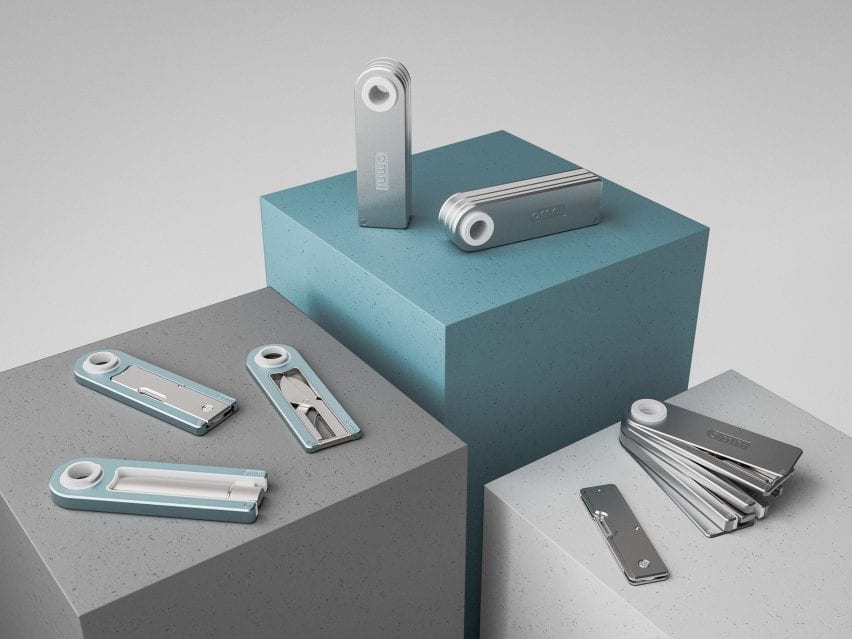
As part of the final year programme, the students launched the brand Above the Fold, for which they created a podcast and blog to share "essential" design-related content.
"Above the Fold stems from the newspaper terminology denoting that the information on the top of a broadsheet newspaper front page is always visible when folded," said the organisers.
"These events and initiatives have all been exciting ways to inspire and connect Brunel designers with each other, alumni and industry experts."
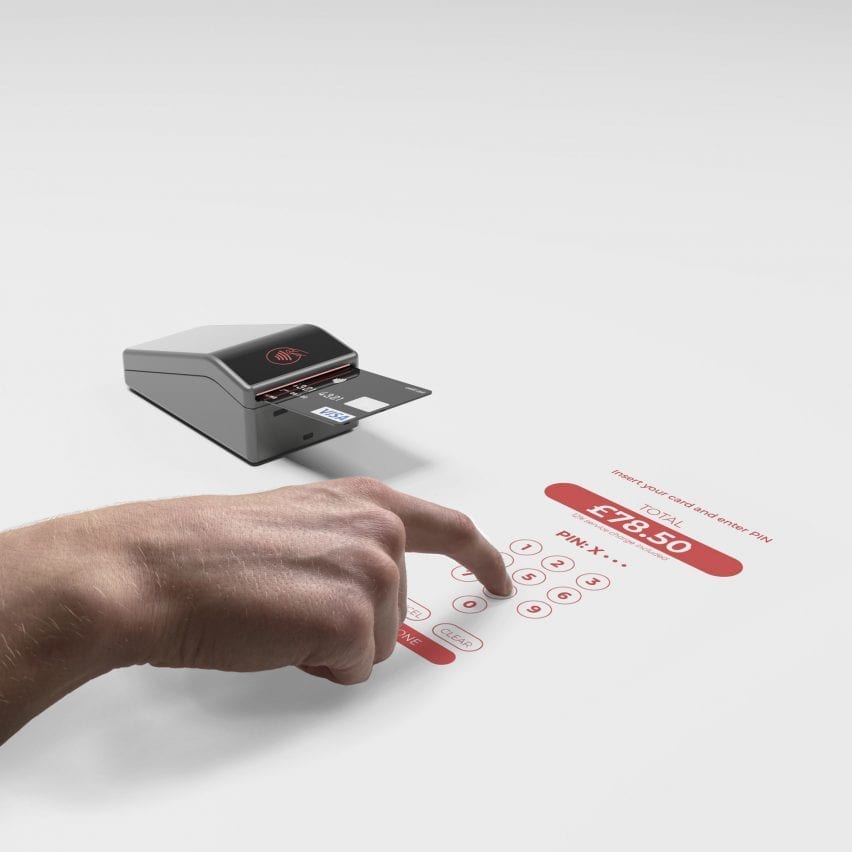
For their final year projects – and as part of Above the Fold – students chose their design briefs, or applied for briefs provided by external sources including the National Health Service and a range of private companies.
By being "immersed" in a range of real-life challenges, the projects aimed to enable students to develop problem-solving solutions.
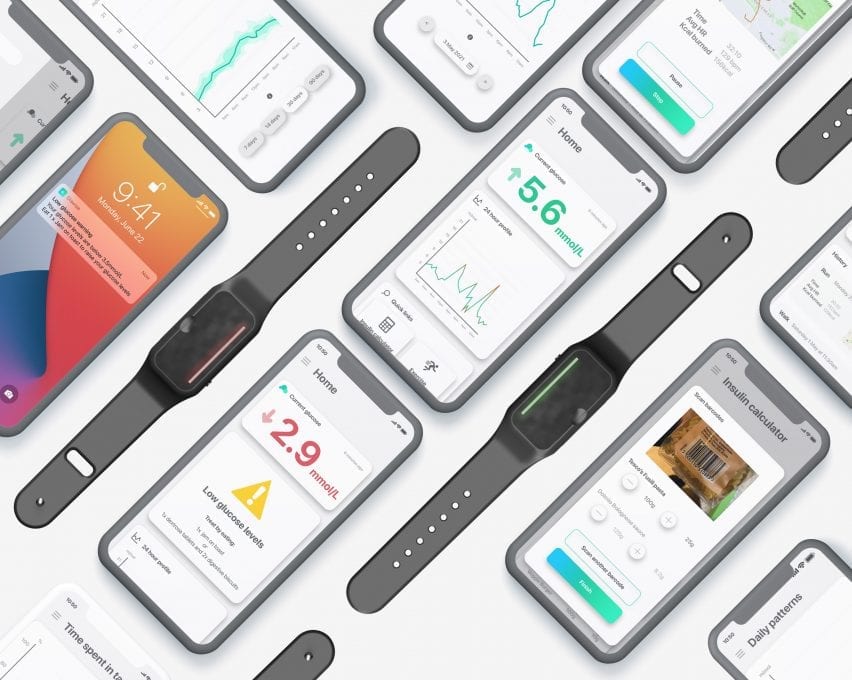
Students also studied six design modules that supported the research and development activities of their final projects. The Human Factors module required students to develop a solution to a problem using human-centred design principles.
"Solutions ranged from quieting noisy popcorn eaters in cinemas to reducing self-contamination during the removal of PPE in intensive care units," said the university.
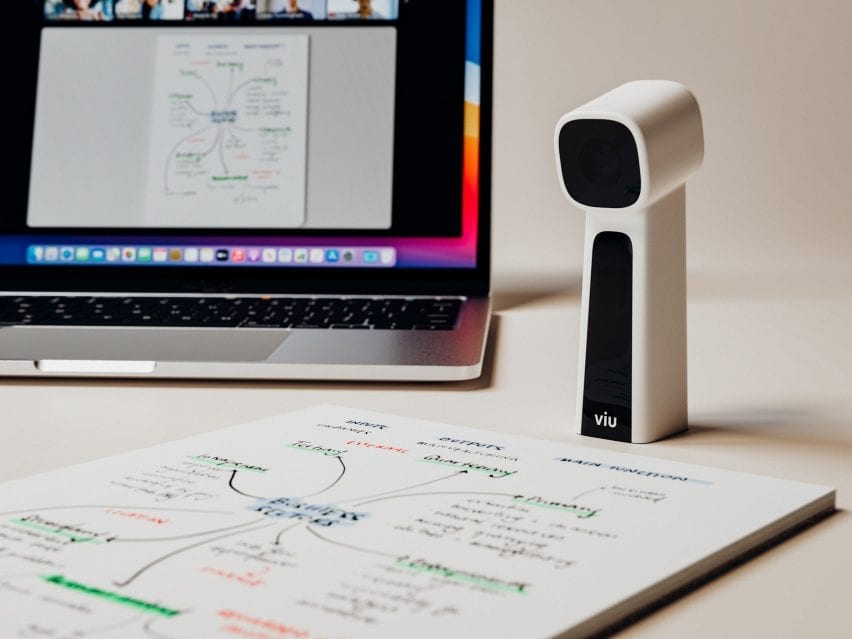
Students who chose the Environmentally Sensitive Design module dismantled a product, conducted a life-cycle analysis on it, then redesigned it using eco-design strategies.
The lifecycle analysis of the redesign "revealed reductions in carbon emissions and energy consumption in production," according to the organisers.
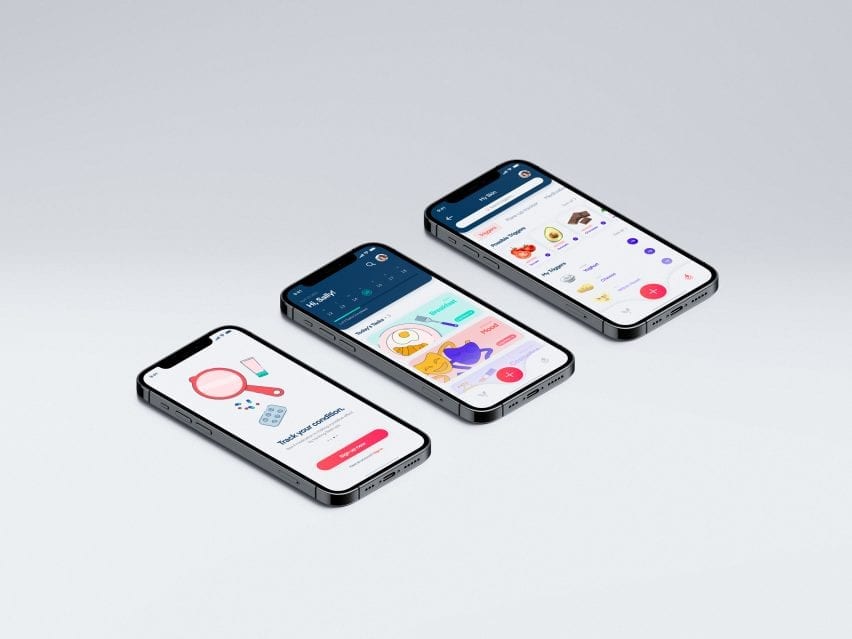
In a third module, called Design and Innovation Management Processes, students designed a business model for their products and services.
"Specifying target markets and creative ways to reach them helped students understand the next steps in commercialising a product," said the university.
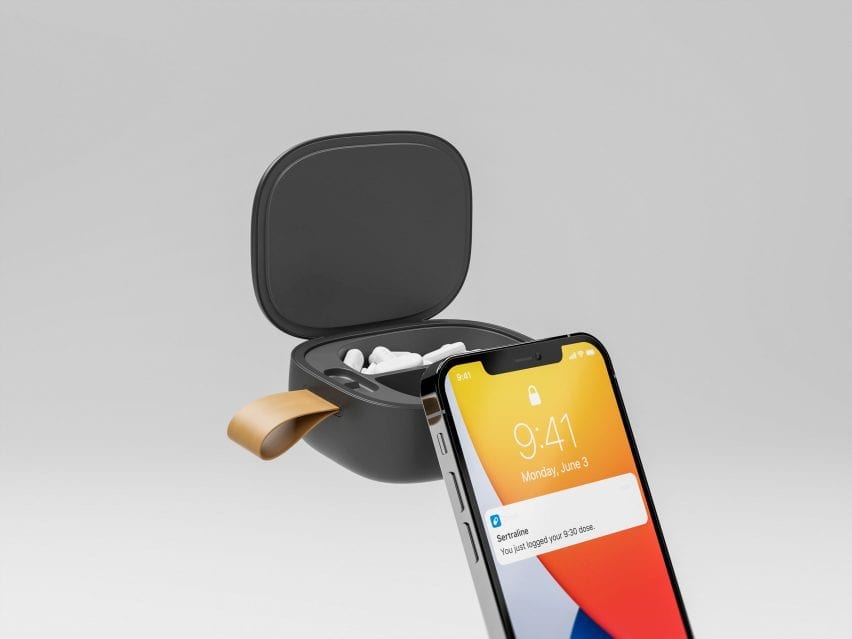
Students who chose the Computer-based Design Methods module were asked to "surface model a car of their choice, test its safety in Siemens Jack software and optimise the design through analysis in ANSYS", according to the university.
For the Contextual Design module, students developed a product to solve real-world issues that might be prevalent in 10–15 years. In the Embedded Systems module, they developed projects "which used sensors and hardware components to carry out a function based on their studies of CCS C code, schematic layouts and printed circuit board design," according to the university.
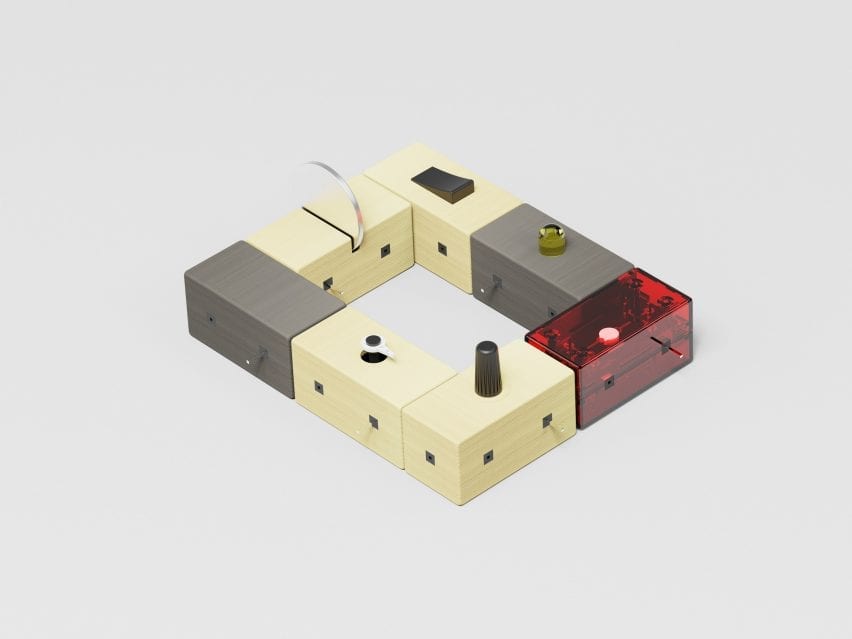
According to the organisers, the exhibition will showcase students' response to these themes and offer an "opportunity to experience the incredible work their designers have created, fostering the next generation of innovative thinkers".
"Something to look forward to will be the chorus of conversations throughout the gallery – we're far too used to the silence of virtual meetings where only one person can be heard at a time," said the organisers.
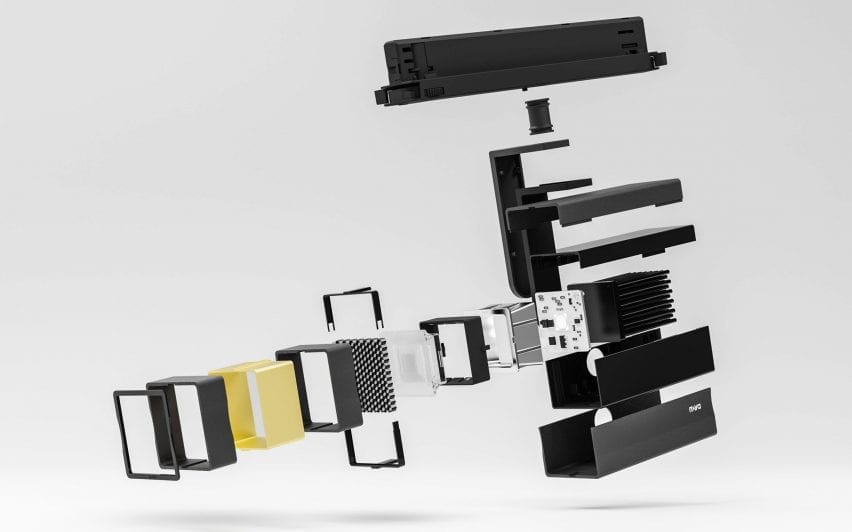
Tickets to Made in Brunel: Above the Fold are free and can be accessed on Eventbrite.
Industry members can also sign up here.
For more information visit the exhibition's website.
Partnership content
This article was written by Dezeen for the Brunel University as part of a partnership. Find out more about Dezeen partnership content here.